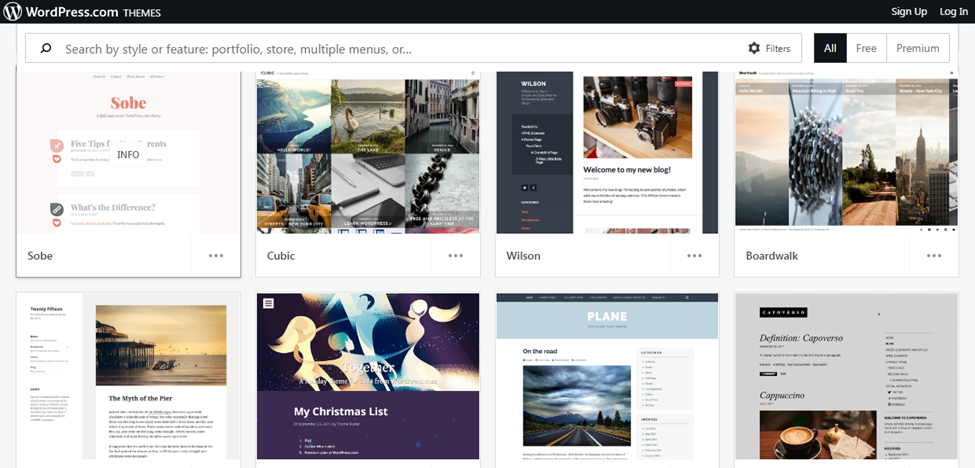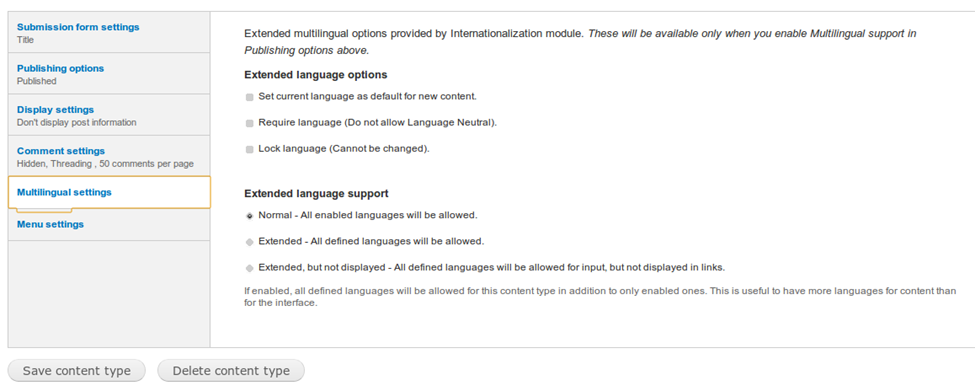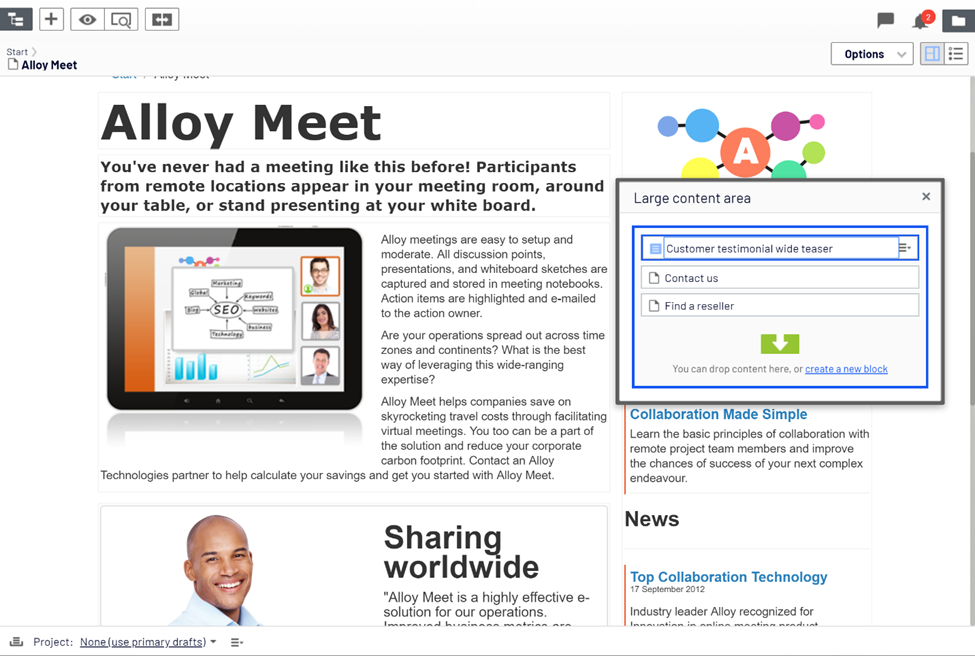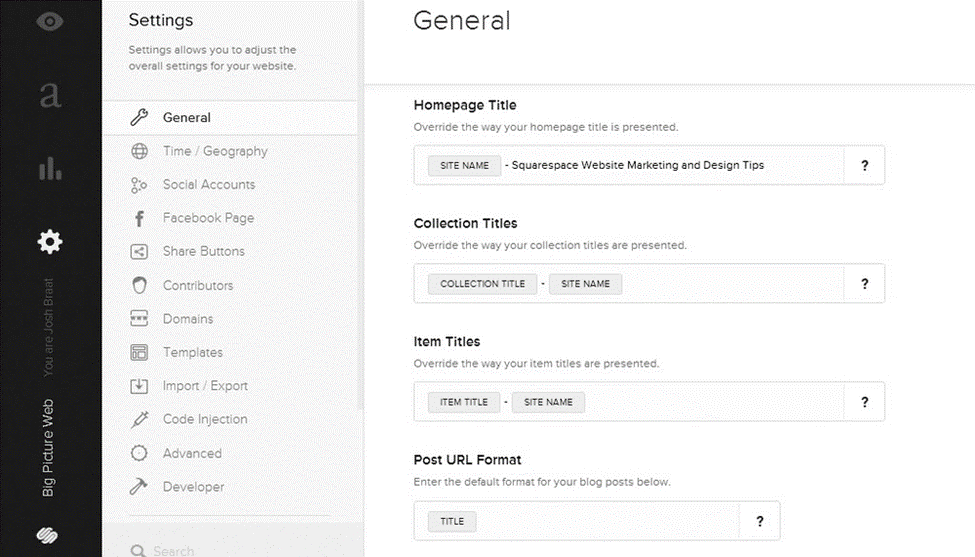Digital publishing has been gaining ground for years, and more readers are embracing digital publishing mediums like blogs, online newspapers, digital magazines, and ebooks. Worldwide revenue from digital publishing currently stands at $22.05 billion and is expected to reach $35 billion by 2025. If you want to get into the digital publishing business, you need the right software to succeed.
This article will show you the best online publishing platforms for digital publishers and what they can offer to help get your digital publishing business up and running.
Software Shortlist
Here’s the list of the best tools that I’ll cover in this article.
- WordPress – Online publishing platform with a wide range of free and premium themes
- Drupal – Online publishing platform for multilingual content creation
- Optimizely – Online publishing platform with default and customizable workflows
- ReadyMag – Online publishing platform with a massive library of fonts.
- FlippingBook – Online publishing platform for converting PDFs into online books.
- Squarespace – Online publishing platform with built-in SEO tools.
- Issu – Online publishing platform with a built-in digital sales feature.
- IngramSpark – Online publishing platform for self-publishing printed and digital books.
- Ceros – Online publishing platform for publishing interactive content.
- Maglr – Online publishing platform for publishing digital magazines.
Comparison Criteria
What do I look for when I select the best online publishing software? Here’s a summary of my evaluation criteria:
- User Interface (UI): A self-published author may not be familiar with professional publishing tools, so I look for software with a clean and easy-to-understand interface.
- Usability: An online publishing platform will be used by authors, editors, and design specialists, so I look for software that anyone can easily use and master.
- Integrations: Digital publishers use other software and tools, so I need an online publishing platform that will work with other tools.
- Value for $: Authors choose to self-publish to save money and maximize revenues, so I look for software with great features but reasonable pricing.
Online Publishing Platform Key Features
- Pre-built templates - Ready-to-use and customizable layouts and templates to make publishing easier.
- SEO tools – Helps digital publishers improve how their content performs in search result rankings.
- Multilingual support – This allows digital publishers to put out content in several languages.
- Payment gateways – Allows authors and publishers to receive payment for single issues or subscriptions.
- Embedded content – This lets you include videos, images, links, and interactive elements in publications.
Indie Media Club is reader-supported. We may earn a commission when you click through links on our site — learn more about how we aim to stay transparent.
Overviews Of The 10 Best Online Publishing Platforms
Here’s a brief description of each online publishing system to showcase each tool’s best use case, some noteworthy features, and screenshots to give a snapshot of the user interface.
1. WordPress – Online publishing platform with a wide range of free and premium themes
WordPress is an online publishing platform that lets you create content within the platform so you can grow your portfolio. It automatically saves your writing every few seconds to prevent accidental loss. You can embed pictures, audio, or videos into posts to make them more attractive. WordPress has an app that works on desktops and mobile devices to let you update your site anywhere.
WordPress is an excellent online publishing platform for beginners because it offers a wide variety of free and premium themes. With the help of WordPress themes, you can design your website even if you are not a design expert. The various themes are easy to customize, so you have a website that stands out and reflects your personality and the type of digital content you plan to publish. Your theme can also help you attract more readers to increase your audience share and revenues.
WordPress has a free plan with limited features, while the pricing for the paid plans starts at $15/month. They offer a 14-day free trial for their paid plans.
2. Drupal – Online publishing platform for multilingual content creation
Drupal is an open-source platform with media creation and content publishing capabilities. It supports multi-channel publishing, so anything you publish on your main website automatically gets published on your social media accounts or mobile application. This digital publishing platform has a content monetization feature for setting up payment gateways to access premium content.
Drupal is an excellent online publishing platform for digital publishers that operate in multiple countries because it supports multilingual content. You can use Drupal to promote a book in the author’s native language if you own a publishing company that publishes books in different languages. Drupal can also be useful in creating brochures in different languages for multinational companies. This digital publishing platform can also translate the contents of your website to make it appealing to members of the local audience.
Drupal integrates with other online publishing tools, including Yoast, Google Analytics, HubSpot, and Tableau.
Drupal provides pricing information upon request.
3. Optimizely – Online publishing platform with default and customizable workflows
Optimizely is a digital experience platform with content management features for online publishers. A publishing company can use Optimizely to give limited access to an author or stakeholder for previewing content and providing approval. An online content or magazine publisher can use Optimizely’s in-browser tools to edit and update media content quickly. You can use Optimizely to store and manage digital assets like videos, images, and audio files.
Optimizely is the best digital publishing platform with customizable workflows to manage a group of editors and authors efficiently. A digital publisher can create a workflow to make managing approvals easier or automatically forward edit requests to a particular content editor. You can use this digital publishing platform to combine default and custom workflows for flexibility and achieve the best results. This content management software lets you create workflows for one-time tasks for an independent author or recurring ones for in-house talents.
Optimizely provides pricing information upon customer request. They do not have a free trial.
4. ReadyMag – Online publishing platform with a massive library of fonts.
ReadyMag is an online publishing solution for creating websites, editorials, portfolios, and presentations. This digital publication platform allows a publisher or digital content creator to use animation and interactive elements to engage website visitors. It allows content creators to use visual anchors to grab the readers’ attention and guide them through the intended content flow. It has subscription forms to help self-published authors gain subscribers and monetize their content.
ReadyMag is the best online publishing platform if you want a wide variety of typography options because it has more than 3,000 fonts in its library. With tons of font and text styles to choose from, an author can make sure that their book will be unique and uses a font that appeals to readers. ReadyMag also allows authors to upload and use their fonts if they want to. ReadyMag constantly updates its font library, so you have new font choices for your new ebook publishing project.
ReadyMag integrates with other digital magazine and ebook publishing tools like MailChimp, Disqus, Stripe, and Google Analytics.
ReadyMag has a free forever plan with limited features, while the pricing for paid plans starts at $13.5/month/account.
5. FlippingBook – Online publishing platform for converting PDFs into online books.

FlippingBook is a digital publishing platform for creating, customizing, and branding digital content. It has a content protection feature that lets you restrict where your content gets published. You can also disable your content’s share, download, and print options to prevent piracy.
FlippingBook is the best self-publishing platform for converting PDF to online content. It has a page flip effect to heighten the feeling of reading a printed book. This self-publishing platform has custom skins and backgrounds to help you personalize your online book. FlippingBook also allows you to add GIFs, videos, and external links to create engaging and interactive content.
FlippingBook pricing starts at $14/month/account, and they offer a 14-day free trial.
6. Squarespace – Online publishing platform with built-in SEO tools.
Squarespace is an online publishing platform for building websites, publishing content, and creating e-commerce stores. It has in-browser editing tools to make editing your content easier. Squarespace has pre-built layouts you can use to quickly showcase your content. Squarespace has a built-in commenting system to help you interact with readers and build an online community.
Squarespace is the best online publishing platform if you want your blog or website to stand out by optimizing your content. You can use Squarespace’s built-in SEO feature to optimize your titles and content descriptions and improve search result rankings. Squarespace’s SEO feature can help you reach more readers and increase your revenue potential. This feature can also help you choose effective keywords when targeting a specific demographic.
Squarespace pricing starts at $14/month/account.
7. Issuu – Online publishing platform with a built-in digital sales feature.

Issuu is a digital publishing platform that allows you to create, upload, and publish an unlimited number of digital documents. You can use this platform to customize your content's colors, backgrounds, fonts, and logo to provide readers with a unique digital experience. Issuu allows you to embed video advertisements to your content to boost your revenues.
Issuu is the best online publishing platform if you want one that allows you to sell your digital content without using a third-party application. Its digital sales feature allows you to sell single issues or recurring subscriptions without paying commissions. You can use Issuu to receive credit and debit card payments in US Dollars, Australian Dollars, Canadian Dollars, Euro, or British Pounds, so you can sell to a wide range of subscribers.
Issuu integrates with other digital publishing tools like Adobe InDesign, MailChimp, Dropbox, and Google Drive.
Issuu has a free forever plan with basic features, while the pricing for its paid plans starts at $19/month/user.
8. IngramSpark – Online publishing platform for self-publishing printed and digital books.
IngramSpark is an online publishing platform for publishing and distributing self-published books. If you are a self-published author, IngramSpark can connect you to over 40,000 retailers and libraries to help you boost your book sales. It has an online sales reporting feature to help you automatically track your book sales figures and revenues.
IngramSpark is the best self-publishing platform if you want to create digital and printed copies of your book. This self-publishing platform offers many options for creating printed books, including book types, sizes, covers, binding types, and paper options. If you are a self-published author, you can convert your printed book to an ebook you can sell on Amazon, Apple, BN Press, and Kobo. IngramSpark’s book conversion feature makes sure that your ebook is compatible with e-readers to help you build a reader base.
IngramSpark pricing starts at $25/title.
9. Ceros – Online publishing platform for publishing interactive content.
Ceros is a SaaS for creating and publishing interactive content with pre-built templates so users can quickly create digital content. It also lets you create templates from scratch if you have a specific template design in mind. You can use this digital publishing platform to manage your authors and editors by giving them different access levels depending on their responsibilities and the projects they handle.
Ceros is the best online publishing platform if you want to engage subscribers or readers using interactive content. You can use Ceros to produce interactive presentations, quizzes, and infographics to get your message across quickly. Ceros lets you create interactive landing pages to make new website visitors stay longer and increase the likelihood of turning them into subscribers. You can also use this online publishing platform to create interactive ebooks with videos, audio, and links that readers can interact with.
Ceros provides pricing information upon request.
10. Maglr – Online publishing platform for publishing digital magazines.
Maglr is an online publishing platform for creating online magazines, micro-content, and sales presentations. It has multilingual capabilities to let you publish in multiple languages and appeal to local readers. Maglr lets you customize the colors and typography of publications for consistent branding. This online publishing platform allows you to limit who can print or download your content to prevent piracy.
Maglr is the best online publishing platform if you want to publish digital magazines because it has pre-built layouts and templates you can use to create and publish issues quickly. Maglr’s templates optimize digital magazines to make them readable on large computer screens and small mobile phone screens. This digital magazine publishing platform has SEO tools that let you adjust the title and descriptions to help articles and social media posts rank higher in search engine results.
Maglr pricing starts at around $214/month, and they offer a 14-day free trial.
Other Options
Here are a few more tools for online publishing that didn’t make the top list.
- Webflow - SaaS for building and hosting websites.
- Progress Sitefinity - Content management system for creating, presenting, and storing content.
- Joomla - Open-source content management software for creating and managing web content, forums, and galleries.
- Magnolia CMS - Open-source content management system for creating websites and portals.
- Zesty.io - Digital experience platform for creating, optimizing, and distributing web content.
- Adobe Commerce - Digital platform for creating website content and promotions.
What do you think about this list?
Although traditional publishing is still alive, more authors are veering towards digital publishing because it is cheaper and easier. It also allows access to numerous tools authors can use to produce quality content that appeals to readers and generates more revenues.
Aside from the best online publishing platforms listed above, there are other tools and software to help you produce amazing media content. You can learn about them when you subscribe to Indie Media Club.
Related List of Tools:








